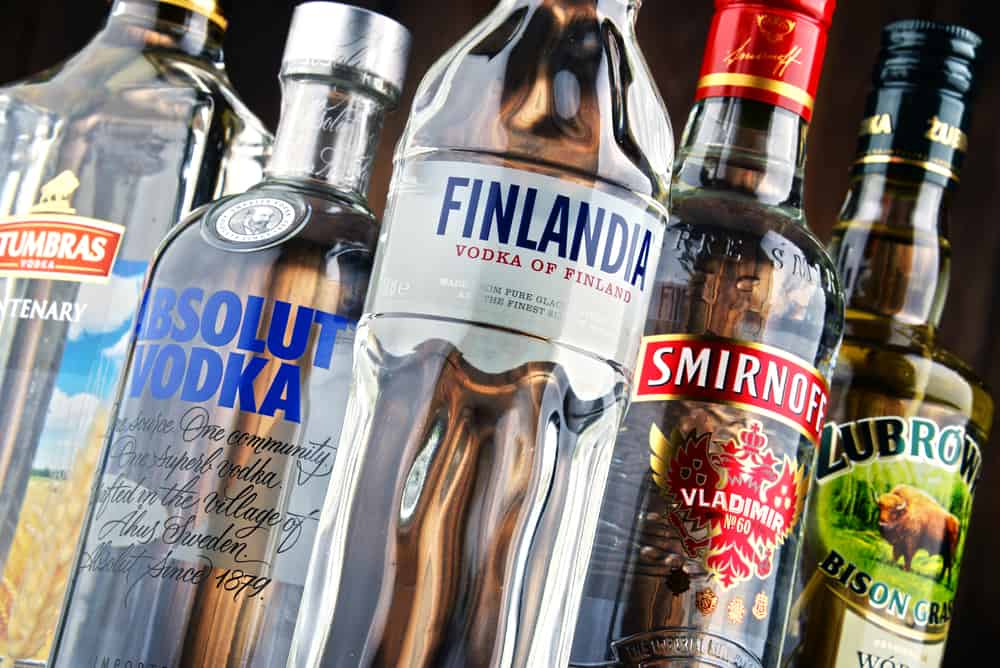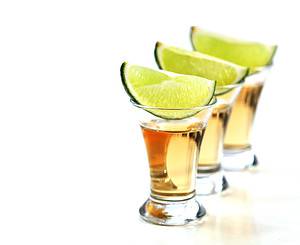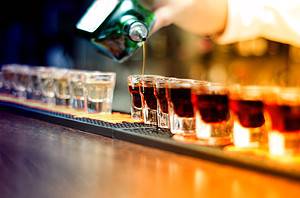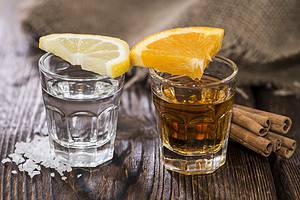Vodka is a popular alcoholic beverage that is often used in cocktails or consumed on its own. However, many people wonder if vodka can go bad and if it has an expiration date. The answer is not straightforward, as it depends on various factors.
Firstly, it is important to note that vodka does not spoil in the same way that other perishable foods do. This is because vodka is a distilled spirit, which means that it has a high alcohol content that acts as a preservative. However, this does not mean that vodka will last forever. Over time, the quality of the vodka may degrade, affecting its taste and aroma. The shelf life of vodka can vary depending on how it is stored, the type of vodka, and whether it has been opened or not.
In this article, we will delve deeper into the factors that can affect the shelf life of vodka. We will explore how to properly store vodka, how to tell if it has gone bad, and whether or not it is safe to consume expired vodka. By the end of this article, readers will have a better understanding of whether or not vodka can go bad and how to ensure that they are consuming high-quality vodka.
Table of Contents
What is Vodka?
Vodka is a clear, colorless, and odorless distilled spirit made from grains such as wheat, rye, or barley. It is one of the most popular alcoholic beverages in the world and is known for its smooth and neutral taste.
The production of vodka involves fermenting grains to create a mash, which is then distilled multiple times to increase its alcohol content. The final product typically has an alcohol content of around 40% ABV (alcohol by volume), but it can range from 30-50% depending on the brand and country of origin.
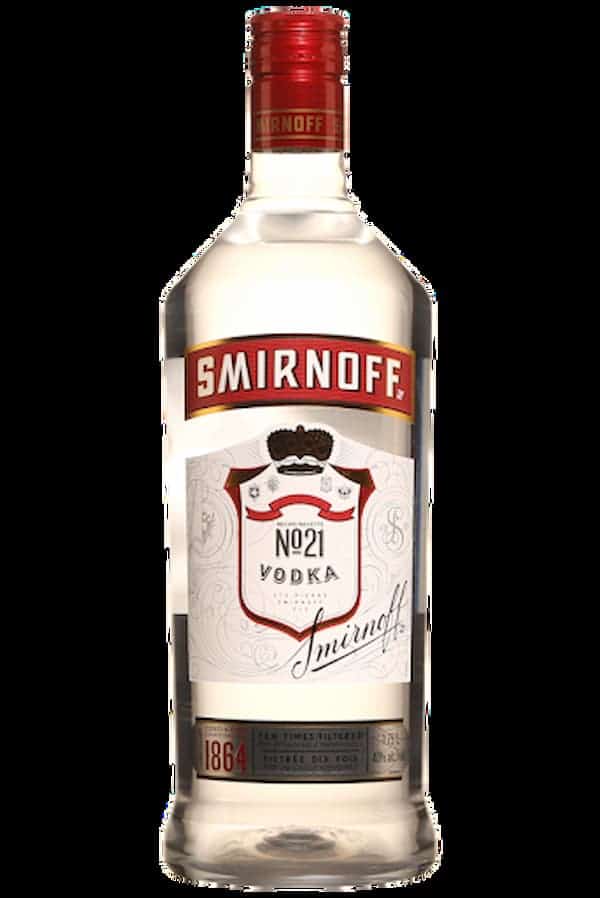
Vodka is considered a type of hard liquor, which also includes other distilled spirits such as whiskey, rum, gin, and tequila. Unlike other types of hard liquor, vodka is not aged in barrels, which is why it is often referred to as a neutral spirit.
Vodka has been around for centuries and has its origins in Eastern Europe, particularly in countries like Russia and Poland. Today, vodka is produced and consumed all over the world and is often used in cocktails or enjoyed straight up as a shot.
Overall, vodka is a versatile and popular spirit that is enjoyed by many.
Does Vodka Expire?
Vodka is a popular alcoholic beverage that is consumed all over the world. However, it is not uncommon for people to have a bottle of vodka lying around in their liquor cabinet for an extended period of time. This raises the question: does vodka expire?
Expiration Date
Unlike many other perishable products, vodka does not have an expiration date. This is because vodka is a distilled spirit, which means that it has a very high alcohol content that acts as a natural preservative. As long as the bottle remains unopened, the vodka will remain safe to drink indefinitely.
Shelf Life of Vodka
While vodka does not technically expire, it does have a shelf life. The shelf life of vodka refers to the amount of time that the vodka will maintain its quality and flavor after it has been opened. Once the bottle has been opened, the vodka will begin to degrade slowly. This process is known as oxidation, and it can lead to a loss of flavor and aroma.
The shelf life of vodka can vary depending on a few factors, such as the quality of the vodka, the storage conditions, and how frequently the bottle is opened. Generally speaking, a bottle of vodka that has been opened will maintain its quality for around 1-2 years.
Shorter Shelf Life
It is worth noting that flavored vodkas tend to have a shorter shelf life than unflavored vodkas. This is because the added flavorings can interact with the alcohol and cause the vodka to degrade more quickly. Additionally, if the vodka has been exposed to light or heat, this can also cause it to degrade more quickly.
In conclusion, while vodka does not technically expire, it does have a shelf life. As long as the bottle remains unopened, the vodka will remain safe to drink indefinitely. However, once the bottle has been opened, the vodka will slowly degrade and lose its quality over time. The shelf life of vodka can vary depending on a few factors, but generally speaking, a bottle of vodka that has been opened will maintain its quality for around 1-2 years.
How to Store Vodka
When it comes to storing vodka, there are a few things to keep in mind. Proper storage can help ensure that your vodka lasts as long as possible and tastes as good as it did when you first opened it. Here are some tips for storing vodka:
Room Temperature
Vodka should be stored at room temperature. Extreme temperatures, whether hot or cold, can affect the taste and quality of the vodka. If the vodka is exposed to high temperatures, it can evaporate, which can cause the bottle to become half-empty over time. Therefore, it’s important to store vodka in a cool, dry place at room temperature.
Direct Sunlight
Direct sunlight can also affect the quality of vodka. Sunlight can cause the vodka to break down and change the taste. Therefore, storing vodka in a dark place, away from direct sunlight is essential.
Cool Place
As mentioned earlier, vodka should be stored in a cool place. A liquor cabinet or pantry is an ideal place to store vodka. It’s important to keep the vodka away from any heat sources, such as stoves or ovens. The best temperature to store vodka is between 50-70°F, which is the average room temperature.
Vodka Bottle
The vodka bottle is also essential when it comes to storage. The bottle should be airtight, and the cap should be tightly sealed. This will prevent any air from getting in and affecting the quality of the vodka. Glass bottles are the best for storing vodka, as they don’t react with alcohol. Plastic bottles, on the other hand, can leach chemicals into the vodka, which can affect the taste.
In summary, vodka should be stored at room temperature, away from direct sunlight, in a cool place, and in an airtight glass bottle. By following these tips, you can ensure that your vodka lasts as long as possible and tastes great every time you drink it.
What Happens When Vodka Goes Bad?
Vodka is a popular and versatile liquor that can be enjoyed on its own or used as a base for cocktails. But what happens when vodka goes bad? In this section, we will explore the effects of bacterial growth on vodka and how it can impact its taste and quality.
Bacterial Growth
Like any other food or beverage, bacterial growth can affect vodka. When bacteria begin to grow in vodka, it can lead to a variety of problems, including changes in taste, odor, and appearance.
One of the most common types of bacteria that can grow in vodka is acetobacter. This bacteria is responsible for turning alcohol into acetic acid, which gives vinegar its sour taste. When acetobacter begins to grow in vodka, it can cause the liquid to develop a sour or vinegar-like taste.
Another type of bacteria that can grow in vodka is lactobacillus. This bacteria is responsible for turning lactose into lactic acid, which is commonly found in sour milk and yogurt. When lactobacillus begins to grow in vodka, it can cause the liquid to develop a sour or tangy taste.
In addition to changes in taste, bacterial growth can also cause vodka to develop an unpleasant odor. This can be caused by a variety of factors, including the type of bacteria that is growing and the conditions in which the vodka is stored.
To prevent bacterial growth in vodka, it is important to store it properly. Vodka should be stored in a cool, dark place, away from heat and light. It should also be kept in an airtight container to prevent oxygen from getting in, which can promote bacterial growth.
Overall, while vodka can go bad due to bacterial growth, it is relatively stable and has a long shelf life when stored properly. By following proper storage techniques, you can ensure that your vodka stays fresh and delicious for as long as possible.
How to Tell if Vodka Has Gone Bad
Vodka is a popular spirit that can last a long time if stored properly. However, like any other alcoholic beverage, it can go bad over time. Here are some ways to tell if your vodka has gone bad:
Check the Appearance
The appearance of vodka can give you a clue if it has gone bad. If you notice any sediment, cloudiness, or discoloration, it may be a sign that the vodka has started to break down. Vodka should be clear and colorless, so any changes in appearance should be taken seriously.
Smell the Vodka
The smell of vodka can also help you determine if it has gone bad. If the vodka smells like nail polish remover or has a sour or musty odor, it may be spoiled. Vodka should have a clean and neutral smell, so any unusual odors should be a cause for concern.
Taste the Vodka
Tasting the vodka is the most accurate way to tell if it has gone bad. If the vodka tastes off or has a strange flavor, it may be spoiled. Vodka should have a smooth and neutral taste, so any unusual flavors should be a warning sign.
Check the Bottle
Lastly, checking the bottle can also help you determine if the vodka has gone bad. If the bottle is damaged, leaking, or has a broken seal, it may have been exposed to air and contaminants, which can cause it to spoil.
If you have an unopened vodka with the original cap still in place and there is no leakage, you should be in great shape.
In conclusion, vodka can go bad over time if not stored properly. By checking the appearance, smell, taste, and bottle, you can determine if your vodka has gone bad and avoid drinking spoiled alcohol.
The Short Answer
Vodka is a popular spirit that many people enjoy drinking. However, it is not uncommon for people to wonder if vodka goes bad. The short answer is no, vodka does not go bad in the traditional sense of the word.
Unlike wine or beer, vodka does not have an expiration date. It is a distilled spirit that is made up of water and ethanol. Ethanol is a natural preservative that prevents the growth of bacteria and other microorganisms. As a result, vodka can last indefinitely if stored properly.
That being said, some factors can affect the quality of vodka over time. For example, exposure to light and air can cause vodka to lose its flavor and aroma. This is why most vodka bottles are made of dark glass and have a tight seal to prevent air from getting in.
Additionally, if vodka is stored in a warm place or exposed to extreme temperatures, it can become less potent and lose its smooth taste. It’s best to store vodka in a cool, dark place, such as a pantry or liquor cabinet.
In summary, the short answer is that vodka does not go bad. However, it can lose its flavor and potency over time if not stored properly.
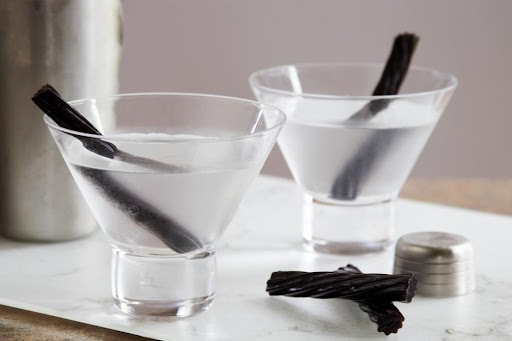
Conclusion
In conclusion, vodka does not go bad if stored properly, but it may lose its quality over time. The quality of the vodka depends on various factors, such as the quality of the ingredients, the distillation process, and the filtration process.
Premium vodka is usually made from high-quality ingredients and undergoes a rigorous distillation and filtration process, which makes it less likely to go bad. However, even premium vodka can lose its quality over time if not stored properly.
An open bottle of vodka can last for several years if stored in a cool, dark place away from direct sunlight and heat sources. However, once the bottle is opened, the vodka may start to lose its quality due to oxidation and evaporation.
An unopened bottle of vodka can last indefinitely if stored in a cool, dark place away from direct sunlight and heat sources. However, it is recommended to consume the vodka within a reasonable time frame to ensure the best quality.
The best way to store vodka is to keep it in a cool, dark place away from direct sunlight and heat sources. Keeping the bottle tightly sealed is also recommended to prevent oxidation and evaporation.
Overall, it is important to note that vodka does not go bad in the sense that it will not make you sick, but it may lose its quality over time. Therefore, it is recommended to consume vodka within a reasonable time frame to ensure the best quality.

